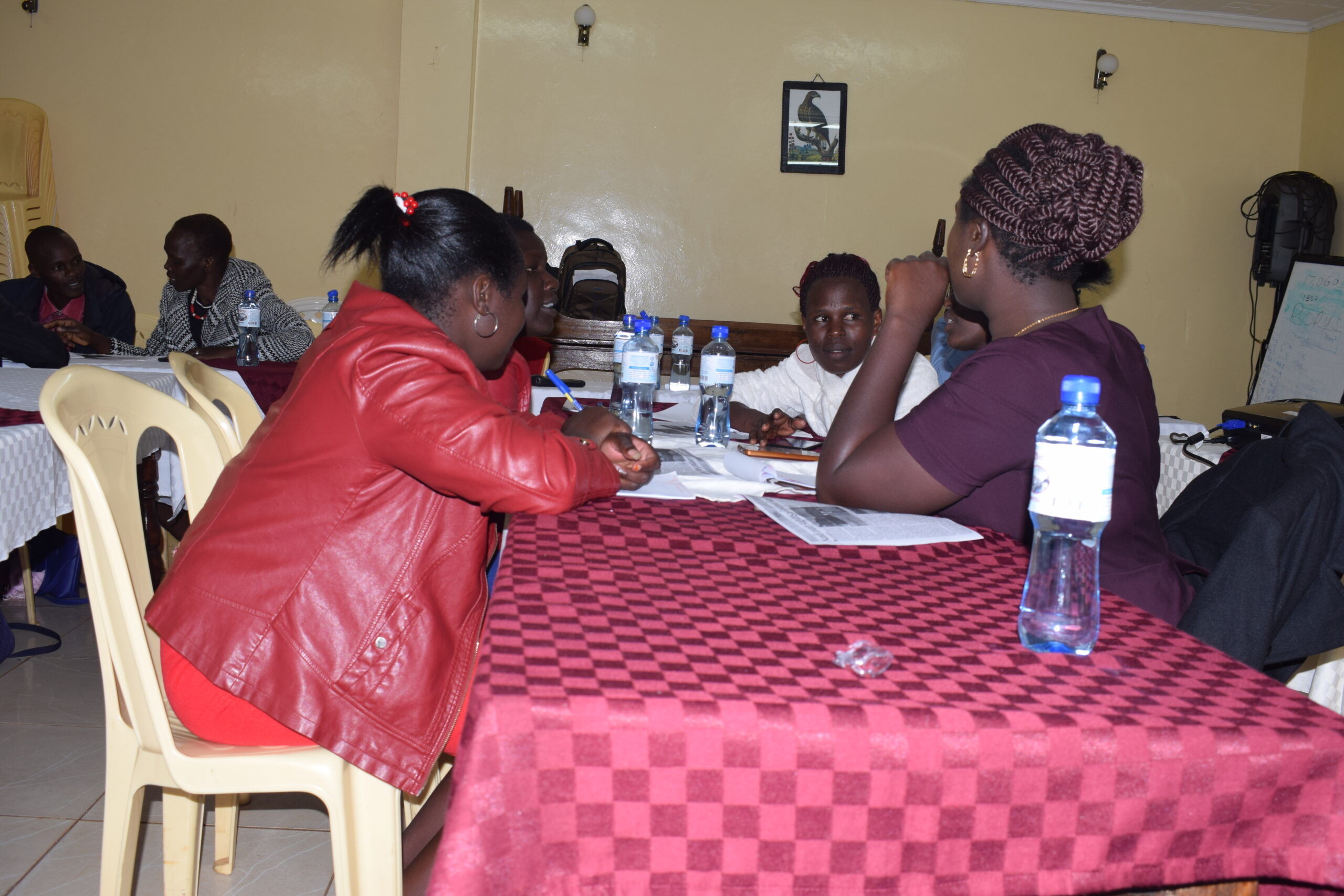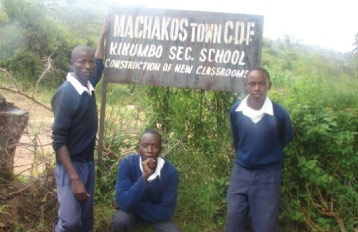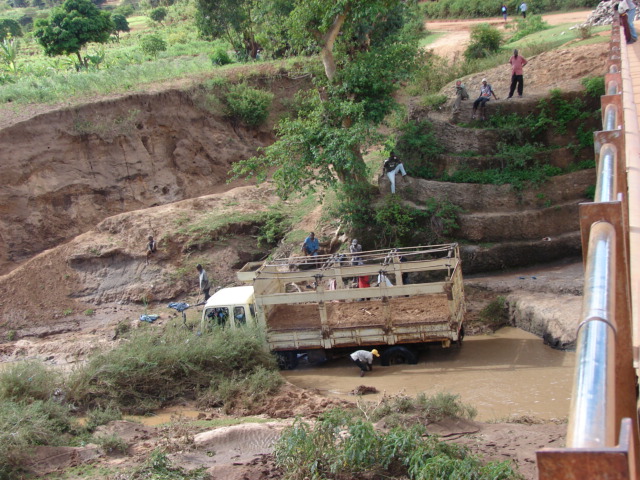The Challenge
The challenges identified during the design of this project included:
- Poor and not-people-focused service delivery
- Challenges in accessing relevant information
- Lack of inclusion of citizens and Non-State Actors (NSAs) in County affairs
- Lack of or uncoordinated public participation at the County level
- Non – involvement of NSAs.
Interventions
This project aimed to expand and deepen citizen participation processes by working through NSAs to educate and create awareness among citizens on their rights, their role in the management of county affairs and active participation in government led development process. It also sought to mobilize citizens and build their capacity so that they are able to be involved in a citizen-led advocacy agenda. Specifically, the project aimed to:
- To strengthen the capacity of the NSAs in Machakos and Nandi in empowering the citizens at the grassroots to actively participate in county development processes; and
- To equip citizens with right information to enable them play an active role in county development processes and decisions making that lead to the achievement of citizen centered development.
Some of the key activities carried out in this project include:
- Training and sensitization of 553 NSA leaders and Community-based Oversight Resource Persons (CORPs) on citizen participation, understanding the roles of civil society in devolved governance systems, Public Expenditure Management processes and advocacy;
- Production of the Machakos County CSO Network (MCCN) three-year strategic plan 2019 – 2021;
- Sensitized and mobilized leaders and residents to attend public participation forums on PEM Processes and other key county affairs;
- County and Ward Level Accountability Forums.
The Achievements
During the implementation of the project, PEN was able to achieve the following:
- Improvement in access to relevant information relating to PEM with the Machakos County Assembly and Executive ironing out their differences to approve the County Integrated Development Plan (CIDP) after the intervention of MCCN and sharing an approved version of the document with the public. The Nandi County Government shared their CIDP immediately after the intervention of Nandi County Civil Society Network (NCCSN) during their first Accountability Forum held in the County.
- Improved engagements between the County Government and the Civil Society Networks where during the Accountability Forums, senior county officials in both Machakos and Nandi counties were able to attend the Forums and engage the Network members, in addition to other informal engagements that has improved the working relations between NSAs and County Government.
- Improved citizen action in the counties as a result of sustained civic education by the CORPs. In Machakos County, residents of Kalama Ward petitioned the County Government to change the location of public participation forum venue, a process that is now ongoing while in Nandi County, residents of Baraton Township petitioned the County Government to revert the status of the Township from being part of the municipality. Though this did not happen, the County maintained the earlier rates as compared to the newly proposed rate.
- Involvement of other government agencies in County Accountability and Transparency. In Machakos County, MCCN petitioned the County Assembly to approve the CIDP to avoid a shut down on County Government Services. In Nandi County, NCCSN petitioned the EACC to conduct an investigation on the alleged misappropriation of funds and theft of materials for planed Early Childhood Development Centers.
Lessons Learnt
Some of the lessons learnt in the course of the project include:
- The use of groups as an approach to community sensitization was more dependable and offered a reliable avenue to sensitize the residents;
- The use of other offices such as the Controller of Budgets and the Auditor General as alternative sources of information enabled the CSO Networks in the two counties to get information on the County Government;
- Having a contact person whom the CSOs can contact to reach other officers in the County Government was important in ensuring that we are able to bring the County Government to a platform where we could engage; and,
- The need to have sustained, regular and focused engagements with the County Governments brought about thawing of hostilities and mistrust thus leading to a building of trust by the County Government towards the civil society actors thus an enhanced collaboration between the two groups.
Outcomes and Recommendations
This project intended to integrate the NSAs and citizens in the management of County affairs. Towards this end, the project was able to strengthen the capacity of CSOs and selected community members (CORPs and Community leaders) by enhancing their knowledge and skills on PEM Processes, Social Accountability and public participation. In addition, this project also enabled the building of relations between the County Government and the NSAs through the County-based Networks.
Some of the recommendations given to various stakeholders:
- The County Governments need to put in place more mobilization mechanisms and engagement platforms that would be at the heart of public participation in the management of county affairs, inclusivity and accountability;
- The County CSO Networks should continue to lead in ensuring that the County Governments remains accountable to its citizens and should always strive to represent the views of the residents; and,
- The donor community should continue to support the CSOs and the residents in ensuring that they are able to hold the government to account through building their capacity to engage in various County governance processes and helping entrench accountability and transparency as they engage the County Governments.
Target Groups and Duration
The project was directly implemented in two counties – Machakos and Nandi – between November 2018 – March 2020 and targeted all the 40 Wards in Machakos and 30 Wards in Nandi. There was a countywide engagement through MCCN and NCCSN.
The project was funded by USAID through the Agile and Harmonized Assistance for Devolved Institutions (AHADI) program.






